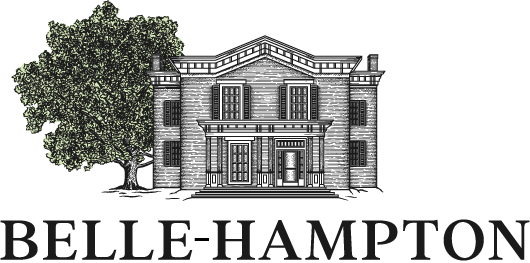Formatting History for the Future
Calling all hobby genealogists, history-hungry researchers, and inquisitive collectors of family stories to discover more about preserving history...
After going down that rabbit hole of documentation leading to a morsel of insight into life a century ago, what next? If you are like me, you have accumulated facts and figures from countless hours online or at the local historical association. Whether you have organized notebooks or scraps of paper with your tidbits of family secrets, the next generation will lose the memories unless they are compiled and presented in an exciting and engaging format.
If you are the family historian by appointment or default, there is a sense of responsibility to preserve the gift of knowledge you are the keeper. Due to my research and partly due to inherited data, I have boxes of family trees, randomly typed stories, and notebooks full of random facts. Not lacking in documented history going back to the 1600s, my quandary is how to preserve it for the future. Although the millennial generation seems mostly disinterested in the past, I would say I felt the same way at their age. It isn’t until one has lost a mother or father that you long for an understanding of their past. I was wondering how they met, stories of life lessons, and defining moments.
Notable events in history, such as World War I and II and the Great Depression, are worth preserving for future generations. I recently finished reading "The Boys in The Boat" by Daniel James Brown, which recounts the unimaginable reality of living through those difficult times. The negative effects of the economic crisis that initially hit Wall Street quickly spread to small farms across America, causing widespread misfortune. However, the story of Joe Rantz and his Olympic gold medal-winning crew team was almost lost to time, as Joe was on his deathbed. Luckily, the oral history was documented by the author and Joe's daughter, Judy, who kept meticulous records. The book sheds light on those times and provides comfort in our current pandemic. We will overcome this.
Although my parents never won a gold medal, and I don't have the luxury of the best-selling author to help document my family's story, I can pass down the accumulated pieces of information that I hope will give perspective next generation. However, pages and pages of data, facts, and figures won’t inspire even the biggest history nerd. It is the stories that teach and lessons learned that reinforce core values. But where to begin?
There are many computer programs to assist with research, but the formatting I discovered is what I wish to present. If you are on Pinterest, there are endless possibilities that can be overwhelming. I’ve narrowed it down to three things to adequately preserve history: a résumé of a life well-lived, a timeline, and a family tree.
If you are fortunate to have a parent still alive, I recommend capturing the answers to at least the following questions for the résumé:
Where did they grow up, and what was life like at that time?
What information do they have on parents and ancestors?
What significant events did they live through, such as The Great Depression, World War II, the Kennedy Assassination, etc.?
How did they meet their spouse?
Although I was fortunate to interview both my mom and mother-in-law before they passed away, I did not ask the vital question of how my parents met. Since I am the youngest of five, surely my sisters would know the pending question's answer. To my dismay, they did not. Even though I concluded the information to be lost to time since no amount of online research or court records would capture the story, I was pleasantly surprised when a relative happily retold the tale. Now, it is just a matter of capturing what I do know in an appealing format.
A timeline would be the next helpful visual to capture events across the generations. Seeing births, deaths, weddings, and more, along with significant historical events such as wars, economic depressions, and black swan events, can be enlightening. Since my husband's family came to America in 1682, his timeline would be an overwhelming project. I recommend starting with the current generation and adding information over time. Breaking it into decades produces a more manageable document. We decided to name the decades as well to reflect significant achievements, struggles, or events.
Genealogists will tout their trees as an essential part of recording their family story. Although a critical piece of the puzzle, trees filled with dull and dry information are not inspirational. The interpretation of dates and relationships, however, is enjoyable and thought-provoking. When I was first learning about my husband's ancestry and the history of Belle-Hampton, we knew that General James Hoge died in 1961. The assumption was that he fought and died in the Civil War. As a General, after all, the date coincides with when the Civil War started. But upon closer examination of his birth date, he would have been 78 years old. Combined with a diary from his grandson, J. Hoge Tyler, we know he was paralyzed in his last years, eliminating his serving during early Civil War battles. The documenting details of birth, death, and marriage are critical to understanding the relationships and are vital as a reference. I, however, chose to put the information on the résumé of the family member for simplicity. Although a comprehensive family tree can be preserved for future generations, it is too large to print in a readable format.
Researching family history for the sake of research is a pleasant hobby; hours are spent discovering new information and uncovering fascinating stories. The hunt can be the reward, but my passion is to capture history for future generations. Preserve the stories from 250 years ago for the next 250 years. What is your family's story, and how are you formatting it to perpetuate the tales?

